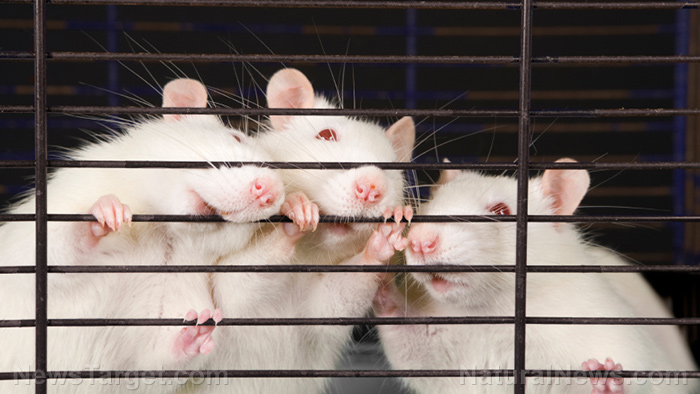These 7 bad habits could be the reason why you’re not getting enough sleep
06/11/2018 / By RJ Jhonson

Like many people these days, your relationship with sleep may be complicated. It creeps in during the day when you actively avoid it but eludes you at night when all you want is a long, quality rest. Before your erratic sleep cycle has you thinking of health-related worst-case scenarios, know that your inability to sleep doesn’t automatically mean there’s something wrong with your body. You probably just need to cut back on certain bad habits.
- Not eating right – The phrase, “You are what you eat,” might feel worn-out, but it’s still true. The food you consume, especially before you sleep, will have an impact on the quality of your slumber. Avoid sweet and spicy items as these take time to digest, which will keep your body awake and may even cause indigestion or heartburn. Instead, choose food items that are rich in tryptophan, which helps in the production of the hormone melatonin that controls your sleep and wake cycle. These foods include dairy products, poultry, and tofu. You may also consume nutrients like magnesium, calcium, and vitamin B6. These are found aplenty in various vegetables, as well as fish oil.
- Consuming caffeine or alcohol – Caffeine is essential to keeping you awake when you need to be productive during the day. However, having too much of it can affect your ability to sleep at night. To minimize its adverse effects, drink coffee only in the morning. With alcohol, moderation is always key. It has diuretic properties, so while taking a little may help, imbibing too much will have you getting up a lot during the night to go to the toilet. (Related: Natural Sleep Aids: Enjoy a Good Night of Sleep.)
- Sleeping on uncomfortable bedding – The bed you sleep on can have a surprisingly significant impact on the quality of your restfulness. To ensure maximum comfort and relaxation, try to replace your old mattress and invest in a new one. Make sure that your sheets are also changed regularly. Silk makes for amazing blankets and pillowcases and will help you feel comfortable before you sleep. While a full set can be too pricey, having just one pillowcase will be enough to improve your sleep.
- Sleeping in a messy room – You want the room you rest in to be as conducive to sleep as possible. Melatonin is sensitive to light, so eliminating unnecessary light sources is crucial to a good night’s sleep. Install heavy blinds and curtains and turn off unneeded light sources, such as LED bulbs, cellphones, and other devices. Additionally, make sure to properly ventilate the room to maintain a comfortable temperature. Organize your things and keep your room free from clutter. This will help calm you down and will give you peace of mind.
- Using your phone too much – Your phone, as well as other devices with a screen, emit blue light that can stimulate your brain into staying awake. Added to stress and anxiety from reading emails or browsing social media, using your phone right before you rest does not bode well for your sleep cycle.
- Worrying too much – Having a lot of things in your head – whether it’s problems with finances, work or other stubborn ideas – can disrupt your ability to sleep. You can get up once and for all and write your thoughts down. This will get them out of your head and even allow you to set up a reminder of issues you need to sort out once you’re awake enough.
- Not relaxing enough – Sleep is a process that sometimes requires the right circumstances. There are several steps you can take to relax your body and prepare yourself for resting. These include meditation, breathing exercises, or even something as simple as showering before bed.
Learn about the natural healing powers of sleep at HealingArts.news.
Sources include:
style="display:inline-block;width:728px;height:90px"
data-ad-client="ca-pub-8193958963374960"
data-ad-slot="9675391933">
Tagged Under: blue light, caffeine, insomnia, lifestyle habits, Meditation, melatonin, Naturopathy, quality of sleep, remedies, rest, sleep, sleep cycle, sleep habits, sleepless, tryptophan



















